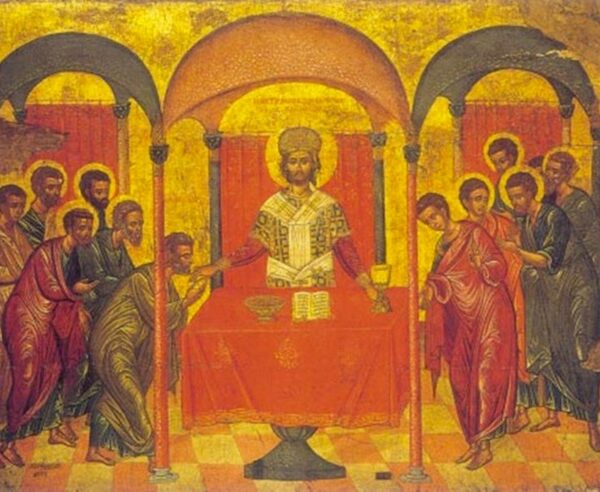Your own from your Own
7 October 2020One time when Jesus was going to Jerusalem, He wanted to stop at a Samaritan village. He sent messengers to prepare for His arrival, but the Samaritans were unwilling to accept Him, because He was on His way to Jerusalem. ‘When the disciples James and John saw this, they asked, “Lord, do you want us to call fire down from heaven to destroy them as Elijah did?”. But Jesus turned and rebuked them. “You do not know of what spirit you are; the Son of Man has not come to destroy souls, but to save them”’ (Luke 9, 54-56).
***
It’s often the case that we think we’re acting in accordance with the will of God whereas, in fact, we’re making a tragic mistake and we’re asking for things which are contrary to it. And if the apostles were capable of making that mistake, how much more so are we.

This is why it’s necessary for us to know, on each occasion:
* what we’re asking of Christ and how we’re asking it;
* what we’re offering to Christ and how we’re offering it.
In the middle of the Divine Liturgy, just before he blesses the bread and wine to change them into the Body and Blood of Christ, the priest proclaims:
‘We offer you your own from your own, in all things and for all things’.
These words mean:
‘The gifts (the bread and wine) are yours, from among your creations (the whole world). We offer them to you in accordance with what your Son taught us (in all things) and for everything you’ve done for us (for all things).
So it’s not enough for us to offer our gifts to God as if we were fulfilling some obligation, or to ask for something.
We offer gifts to Christ:
* In order to express to Him our thanks/gratitude for everything He’s done and suffered for us, particularly for the Cross, the Tomb and the Resurrection.
* And because He commanded and instructed us to do so.
The Lord says: First comes forgiveness and reconciliation with those who have something against us. Then comes the material or spiritual offering to Christ. Any prayer from a heart full of malice doesn’t ascend to heaven.
Our participation in the Divine Liturgy requires effort: rectification of our passions and confession to a spiritual guide. Only then, if we’re well-pleasing to Christ, can we ask anything of Him, with boldness and free-speaking.






